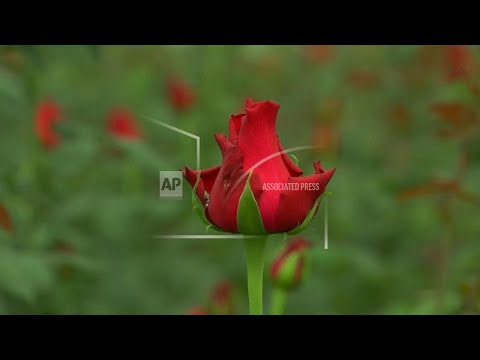(13 Feb 2025)
KENYA VALENTINES FLOWERS
SOURCE: ASSOCIATED PRESS
RESTRICTIONS:
LENGTH: 6:36
ASSOCIATED PRESS
Kajiado, Kenya – 7 February 2025
1. Various of roses
2. Various of workers picking roses
3. Various of workers packing roses in warehouse
4. SOUNDBITE (English) Jacky Mwanzia, marketer, Isinya Roses:
"The challenges that we are facing at the moment with the false codling moth and restrictions to the EU is that they are too strict and most of the time our shipments to the EU are quarantined and it takes time. It is a waste of time when we need to clear for the clients because we have to meet the demand for the customers in time, so we are looking for alternative markets where these measures are not too strict because we end up losing 30 percent of our revenue."
5. Various of workers packing roses
6. Various of Anantha Kumar, Marketing Manager, Isinya Roses, walking factory floor
7. SOUNDBITE (English) Anantha Kumar, Marketing Manager, Isinya Roses:
"We are having a tough time to monitor the regulations and the rules of the EU, where they are strictly telling zero tolerance on caterpillars, zero tolerance on a few chemicals which with the weather conditions now, we have to use otherwise we will not manage to hit our production that we are targeting."
8. Various of workers packing roses
9. SOUNDBITE (English) Anantha Kumar, Marketing Manager, Isinya Roses:
"The Middle East market is not that hard to enter into, as compared to the EU market. With this, most of the farms are also growing other flowers and not just roses, but other summer flowers, fillers to make the bouquet the Middle East market is ready to accept and the market is really growing."
10. Various of workers packing roses
11. SOUNDBITE (English) Anantha Kumar, Marketing Manager, Isinya Roses:
"Before the war started in Russia and Ukraine, we had good volumes that we used to supply to Russia. Since the war started, the volumes started reducing and reducing. As we talk today we have lost 30 to 40 percent of our volume to Russia because of the economic situation currently. That 30 to 40 percent, we have to look for new markets of which we are trying the Middle East and other new markets."
12. Various of workers packing roses
13. SOUNDBITE (Kiswahili) Dinah Wadulo, casual worker at Isinya Roses:
"We are now in the peak season of Valentine’s, and lately, I’ve been spending most of my time at home. I’m glad to have been called for this job, which will enable me to earn enough money to cover my bills and take care of other responsibilities. I feel really happy."
14. Various of workers picking roses
STORYLINE:
LEADIN:
It’s peak season for Kenya’s rose exporters as they prepare Valentine’s bouquets.
But the rise of a pest and stringent EU rules to keep the bugs out of Europe are making a dent in their profits this year.
STORYLINE:
The red rose – a token of love.
But for Kenya, it’s a major economic sector.
The flower industry employs half a million people, according to a Central Bank of Kenya 2021 report.
Kenya’s government estimates that over a third of its flower exports go to Europe, where Kenyan roses are prized for their longevity.
But it takes effort to make a rose look this good. Effort – and chemicals.
Roses are susceptible to a variety of pests, so pesticides are routinely used to minimise losses and ensure a maximum of perfect blooms with each harvest.
As a result, farmers who want to sell to Europe have had to adapt, using fewer pesticides in lower quantities to stay within EU regulations.
These include the Middle East.
Find out more about AP Archive: http://www.aparchive.com/HowWeWork
Twitter: https://twitter.com/AP_Archive
Facebook: https://www.facebook.com/APArchives
Instagram: https://www.instagram.com/APNews/
You can license this story through AP Archive: http://www.aparchive.com/metadata/youtube/9bd6f37f9ab04c6cabd776ebfd4cce96
Author: AP Archive
Go to Source
News post in February 18, 2025, 3:05 pm.
Visit Our Sponsor’s:
News Post In – News





